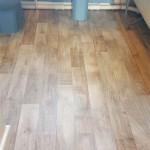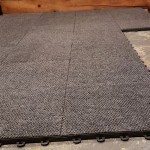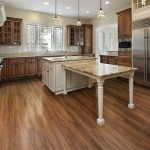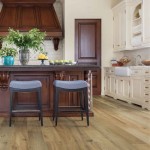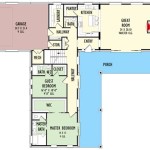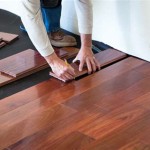Engineered Hardwood Flooring: Pros and Cons
Engineered hardwood flooring is a popular choice for homeowners who want the look and feel of hardwood without the high cost or maintenance. It is made from a thin layer of real hardwood bonded to a plywood or fiberboard core. This construction makes engineered hardwood flooring more durable and moisture-resistant than solid hardwood flooring, but it also means that it cannot be refinished as many times.
Here are some of the pros and cons of engineered hardwood flooring:
Pros:
- More durable than solid hardwood flooring: The plywood or fiberboard core of engineered hardwood flooring makes it more resistant to dents, scratches, and wear. This makes it a good choice for high-traffic areas such as kitchens and family rooms.
- More moisture-resistant than solid hardwood flooring: The plywood or fiberboard core of engineered hardwood flooring also makes it more resistant to moisture than solid hardwood flooring. This makes it a good choice for areas that are prone to moisture, such as bathrooms and basements.
- Can be installed over radiant heat: Engineered hardwood flooring can be installed over radiant heat, which makes it a good choice for homes with this type of heating system.
- More affordable than solid hardwood flooring: Engineered hardwood flooring is less expensive than solid hardwood flooring, making it a more budget-friendly option.
Cons:
- Cannot be refinished as many times as solid hardwood flooring: The thin layer of real hardwood on engineered hardwood flooring means that it cannot be refinished as many times as solid hardwood flooring. This is because the sanding process removes some of the real hardwood each time.
- Not as durable as solid hardwood flooring: While engineered hardwood flooring is more durable than solid hardwood flooring, it is still not as durable as solid hardwood flooring. This means that it is more likely to be damaged by heavy objects or sharp objects.
- Can be more difficult to install than solid hardwood flooring: Engineered hardwood flooring is typically installed using a floating method, which means that it is not nailed or glued to the subfloor. This can make it more difficult to install than solid hardwood flooring, which is typically nailed or glued to the subfloor.
Ultimately, the decision of whether or not to install engineered hardwood flooring is a personal one. It is important to weigh the pros and cons carefully before making a decision.

Engineered Hardwood Vs Laminate

Engineered Hardwood Flooring Pros And Cons Floors Blvd

Engineered Wood Flooring Homeowner Pros Cons

Laminate Flooring Vs Engineered Hardwood Pros And Cons

Solid Vs Engineered Hardwood Which Is Better Flooring

Engineered Timber Flooring Pros And Cons Versace Timbers

Engineered Wood Flooring Pros And Cons Forbes Home

Pros Cons Of Engineered Hardwood Flooring Reno Superstore

Engineered Wood Flooring Reviews Pros And Cons Best Brands Cost 2024

Hardwood Vs Engineered Wood Flooring Which Is Best For You Forbes Home

